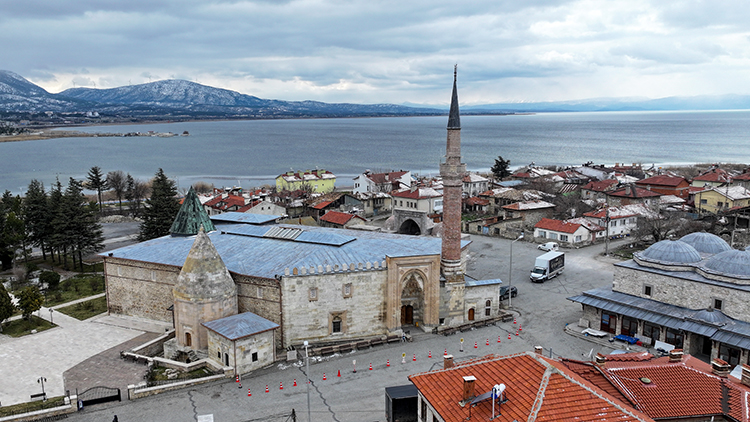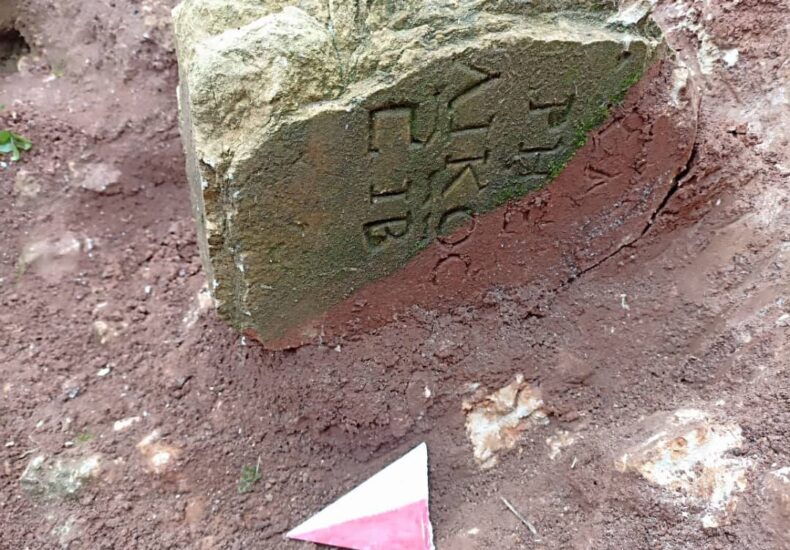
Ancient Greek Tombstone Discovered in Libya After Storm ‘Daniel’
The flood disaster caused by the “Daniel” storm that struck Libya in September 2023 not only brought destruction but also uncovered a hidden history spanning thousands of years. An ancient Greek tombstone revealed by the storm’s currents in the city of Shahhat shed light on the region’s rich past. The Libyan Antiquities Authority officially confirmed
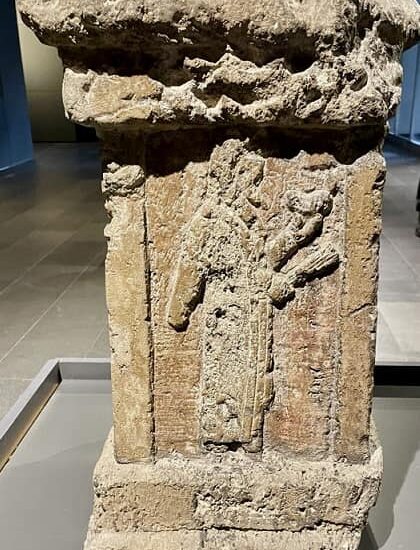
A 2500-Year-Old Persian Fire Altar Reflecting the Fire Cult in Central Anatolia
Discovered in the Bünyan district of Kayseri, Central Anatolia, in the 1930s, the Persian Fire Cult Altar, dating back to 500 BC, is a unique artifact used in Persian fire-related religious rituals. Initially transferred to the Museum of Anatolian Civilizations for security reasons, this altar is known to be the only example depicting the Persian
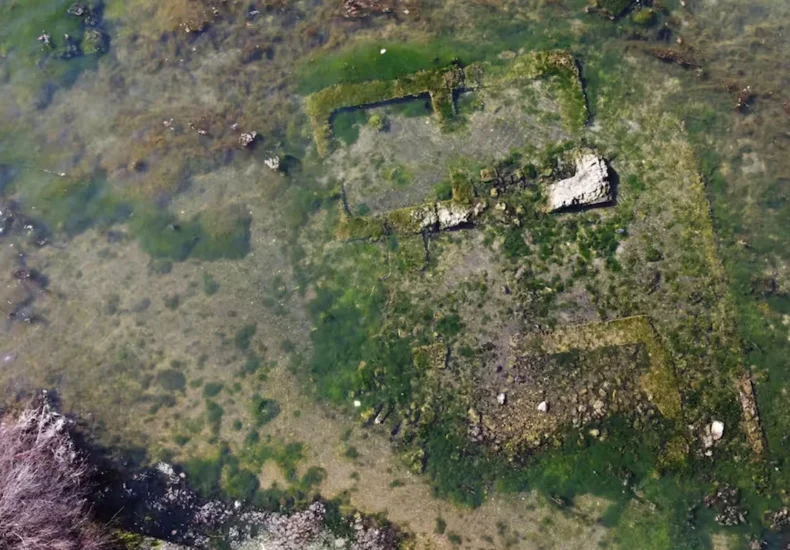
Remains of a Roman village complex emerge from Lake Fusaro in Italy
In Lake Fusaro, near the city of Naples, Italy, the remnants of an ancient Roman village complex have begun to emerge from the water due to bradyseism, a geological process triggered by volcanic activity. This unexpected event is an exciting discovery for archaeologists and historians. Bradyseism refers to the slow rise or fall of the
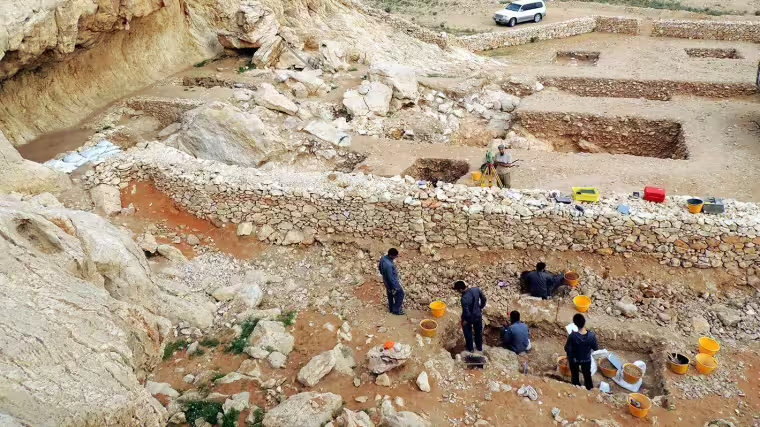
Archaeologists Discover 80,000-Year-Old Stone Knives in South Arabia
In the heart of the Sharjah Emirate, a groundbreaking discovery has unveiled 80,000-year-old stone knives at the Jebel Faya rock shelter. This remarkable find, spearheaded by an international research team led by Dr. Knut Bretzke from Friedrich Schiller University Jena, provides the oldest known evidence of systematic stone tool production in the Arabian Peninsula. Rewriting
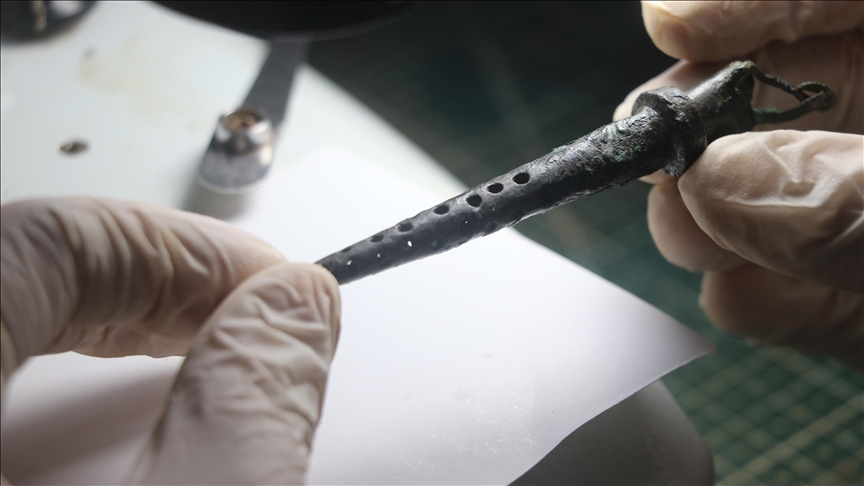
1500-Year-Old Bronze Object Used as a Beverage Filter Discovered in Hadrianopolis Excavations
Excavation efforts at the ancient city of Hadrianopolis have uncovered a bronze artifact believed to date back to the 5th century AD. This item, identified as a beverage filter, was found in the Eskipazar district of Karabük, Turkey. Historical Importance of Hadrianopolis Founded during the reign of Roman Emperor Hadrian II, Hadrianopolis emerged as a
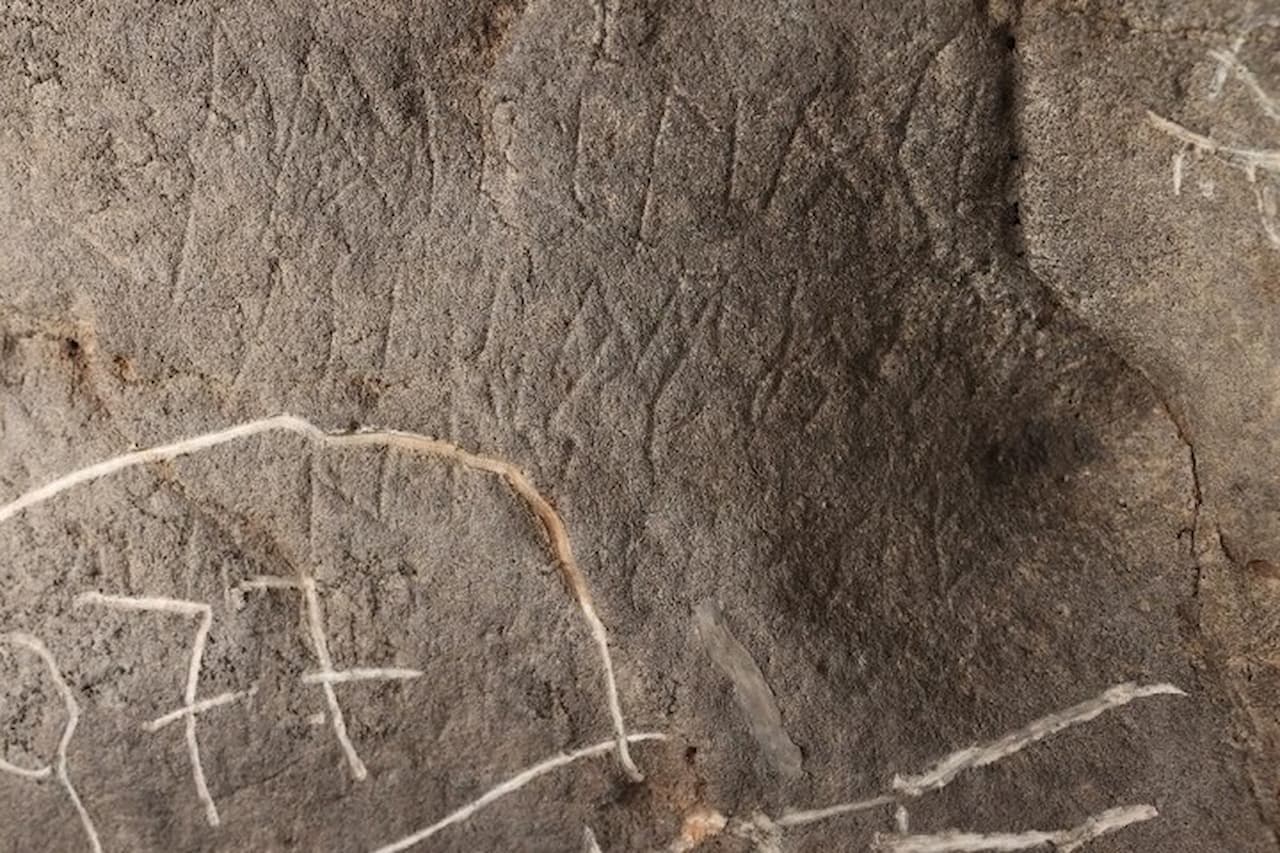
A Roman Temple Inscribed with “Cova de les Dones” Discovered
A team of researchers from the universities of Alicante (UA) and Zaragoza (Unizar) has made an exciting discovery at Cova de les Dones. This site is one of the largest rock art locations on the Iberian Peninsula. The team found a Roman temple, fifteen Roman inscriptions, and a coin from Emperor Claudius’s reign. Importance of
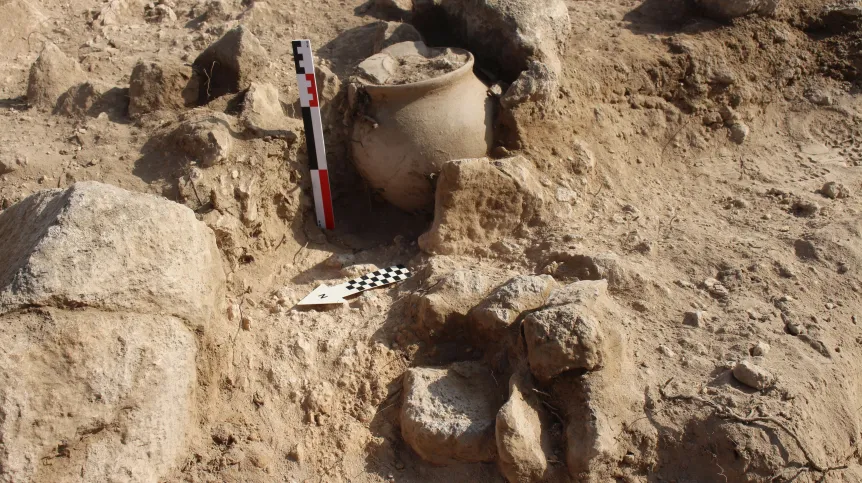
Archaeologists discover Urartian house remains from the 6th entury BC in Armenia
A team of Armenian-Polish archaeologists has made significant discoveries at the Davti Blur archaeological site. They found Urartian house remains from the 6th century BC, a cremation cemetery, and evidence of a powerful earthquake. Dr. Mateusz Iskra, a team member, explains that Davti Blur translates to “David Hill” in Armenian. This name likely refers to
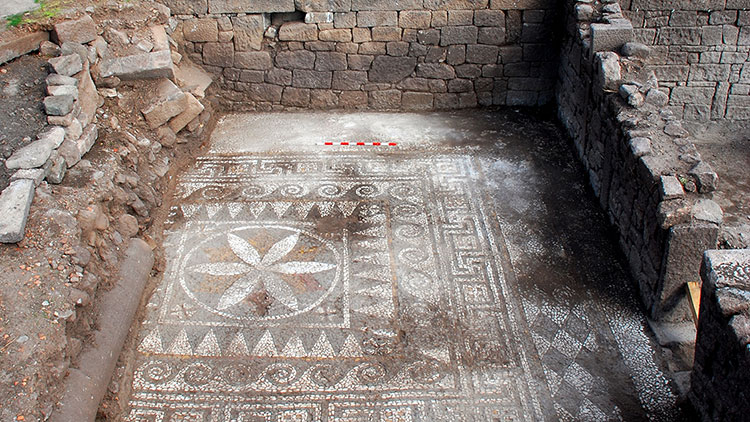
A 2200-Year-Old Well-Preserved Mosaic Unearthed in Assos
Archaeologists have discovered a well-preserved 2200-year-old mosaic during ongoing excavations in the ancient city of Assos. The team also found an 1800-year-old monumental tomb. Location and Historical Significance Assos lies in Behramkale village, within the Ayvacık district of Çanakkale. This ancient city has a rich history that dates back to the 9th century BC. It

